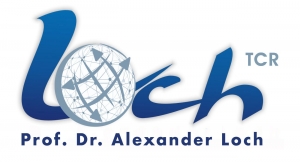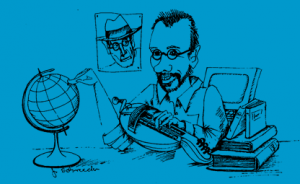CURRENT TOPICS
Human capacity development, migration governance, transmission of values, immigration & integration, cross-cultural management, perspectivity, impact monitoring, intercultural didactics.
Research Networks & cooperations
–> Bonner Institut für Migrationsforschung und Interkulturelles Lernen
–> Netzwerk Fluchtforschung
–> Researchgate
–> Publications
COMPLETED PROJECTS
Documentation of Endangered Languages in Westpapua (2007–2009)
Postdoctoral studies in Wespapua on the island of Yapen and in Manokwari at UNIPA.
The island of Papua has the most languages in the world; many of the 250 ethno-linguistic groups of West Papua are threatened with the loss of their intangible cultural heritage. With the substantial support of the Volkswagen Foundation and the Max Planck Institute for Psycholinguistics, a Center for Endangered Languages Documentation was established in Manokwari (Indonesia) together with researchers from the Universitas Papua Negeri and the University of Münster.
Local Finance Management & Decentralization in Indonesia (2006–2007)
Indonesia is the fourth largest country in the world in terms of population with approximately 261 million inhabitants. Since 1999, the decentralization of the island state has been advanced by a large number of laws and regulations. The systemic changes require, on the one hand, the monitoring of social, economic and ecological impacts and, on the other hand, there is an immense need for further training of the actors (officials, policy makers, cities & villages). We worked on site with scientists and lecturers from six universities (Jakarta, Yogyakarta, Malang, Manado, Makassar, Padang). The focus was on issues of local financial management and modern capacity building in order to qualify human resources for sustainable decentralization nationwide.
Psychosocial reconstruction in East Timor (2002–2005)
How do people mentally process their deconstruction experiences from 24 years of violence and resistance? What helps after years of traumatisation? Which traditional forms of reconstruction are not or only insufficiently appreciated by modern development aid projects? Are nuns the better therapists?
Three years of research on the island of East Timor and learning the local language Tetum were necessary to answer these and similar questions.
The theoretical answers are condensed into 560 pages of the monograph ”Haus, Handy & Halleluja — Psychosocial Reconstruction in East Timor” (IKO Verlag, 2007). In particular, the parallels of change management in development aid and indigenous therapy received international attention.
Culture Comparative Conflict & Emotional Regulation (2000–2001)
Towards the end of the millennium, two regions in insular Southeast Asia were very difficult to access: Shortly after the withdrawal of the Indonesian army as a result of a UN independence referendum, East Timor could only be reached in a World Food Programme plane; the crisis regions of Papua were only accessible on foot. But the expedition was worth the effort: Emotional expressions have a universal repertoire — but what is annoying in the highlands of Papua or what traumatizes a Timorese person can only be understood in a cultural context. You have to go there to understand the people.
Diagnostics in Trance in Northern India (1998)
The so-called Dangaria are traditional healers who deliberately put themselves into a temporary trance and help those seeking advice to work out their own potential solutions using techniques that have parallels to Western psychotherapy. Field research together with Dr. M. Kharkwal, University of Bairellly
The Acculturation Dynamics of German Development Workers in Nepal (1995)
A change of culture — whether voluntary as a development aid worker or forced as an IDP — is always accompanied by cognitive and emotional processes that can be observed at individual level, but also in groups. From the psychogenesis of the decision to leave the country to acculturation on the spot, German development workers in Nepal were interviewed in multiple locations. (The way there was already exciting: In an own Landrover from Cologne to Kathmandu …)
Values in cultural comparison (1994–1995)
Collaboration in comparative cultural value research (with Shalom Schwartz and Klaus Boehnke, 1994);
Visiting Scholar at the Research School for Asian and Pacific Studies (RSPAS) of the Australian National University (2005);
Other short-term projects
Implementation of feasibility studies and developmental programmes in Burma (2004), Afghanistan (2005), Cuba (2007), East Timor (2000–2010), Indonesia (2009–2010), China (2005), Mozambique (2010), Tanzania (1998), Kosovo (2019), Ecuador (2020).
ONGOING PROJECTS
Human Capacity Development for Migration Governance (2020)
The Global Compact on Refugees (GCR) and the Global Compact for Safe, Orderly & Regular Migration (GCM) pose numerous new challenges for international organizations (such as UNHCR, IOM, World Bank) and national decision-makers. In cooperation with the GIZ, the research project Human Capacity Development for Migration Governance (HCD4MG) at the HVF investigates the question of how individual and organisational capacities are developed in selected countries in order to achieve a so-called ”triple-win effect” (for countries of origin, host countries and those seeking protection) and thus ideally also contribute to achieving the Sustainable Development Goals (SDG) of the United Nations. Central to this is the concept of (multi-level) ”migration governance”, which usually refers to processes in which politics, business, civil society, refugees, migrants and other interdependent actors are involved in government action in order to develop — and implement — coherent migration policies. The analysis of training scripts, participatory observation in capacity development measures and the systematic questioning of key actors in this context currently indicates that much of what has long been established as best practice in German Development Cooperation from advisory work with ministries, states and municipalities is being replicated; innovations (for example, in remittances management, ICT4refugees, the-future-of-work), however, are emanating precisely from countries such as Indonesia, Ecuador, Kosovo and the Global Forum on Migration and Development (GFMD).
Transmission of values in the youth welfare system of Bonn (2019–2020)
Almost 30% of the people in North Rhine-Westphalia have a so-called ”migration background”. At the beginning of 2019, 41,211 unaccompanied minors were living in Germany under youth welfare law.
Although their absolute number has been decreasing continuously since the end of 2016, after a phase of initial care, the socio-pedagogical, psychological and youth welfare experiences and issues concerning ”integration” and ”intercultural conflicts” in the coexistence of more than 40 nations are increasing.
The examination of values and norms within German society as well as the cultural perspectives of young people from different countries of origin is the starting point of this study at HVF. Reflections on ”value formation” (which is more profound than the mere ”mediation” of norms and values) will be developed in a participatory manner with the key actors in youth welfare and brought into exchange with interdisciplinary value research in the German-speaking world.
Action Research Projects
Intercultural changes of perspective of students and refugees: Black Forest (2017, 2018, 2019)
Flatbread or Swabian raviolis? The negotiation processes of students of administrative sciences and refugees from Syria and numerous other countries of origin, who have already reached A2 language level in Germany and who together in a Black Forest cabin enter into an in-depth dialogue on culture, integration, resistance, flight, de-Christianization of the Occident, modernization of Islam, cultural standards, etc., are applied research par excellence.
Development of teaching materials at the Instituto Cathólico para Formação de Professores in Baucau: East Timor (2002–2005)
For a long time, ethnologists have tended to do research on foreigners instead of entering into a dialogue with people of other cultures, which inspires each other and initiates development processes. In East Timor, following the country’s independence, the opportunity arose to work together with young local researchers not only to discover unique ethnographic material (e.g. on the sacred house reconstructions of the Makassae) and to observe the post-conflict processes in Asia’s least developed country (LCD), but also to make a sustainable contribution to the development of the country’s education system by establishing a teacher training institute (ICFP).
Film productions on intercultural communication in Chiang Mai, Thailand (1999)
In the VOP Studio, Chiang Mai, numerous films on typical Critical Incidents were produced in cooperation between Asian and German partners. Later films on intercultural communication in African, Oriental and South American contexts followed at the German Foundation for International Development.
With ships, buses & Trans-Siberian Railway from the edge of South East Asia to Paris
As is well known, detours increase the knowledge of the place. And if you want to reach your destination quickly, you should — so Confucius advises — go slowly. After three years in insular Southeast Asia, the rapprochement with Germany in 2005 took place slowly via Indonesia, Malaysia, Thailand, Laos, Vietnam, China, Mongolia, Russia and Eastern Europe. But the re-entry shock in the face of the introduction of the Euro during a longer period of absence did not fail to occur …





